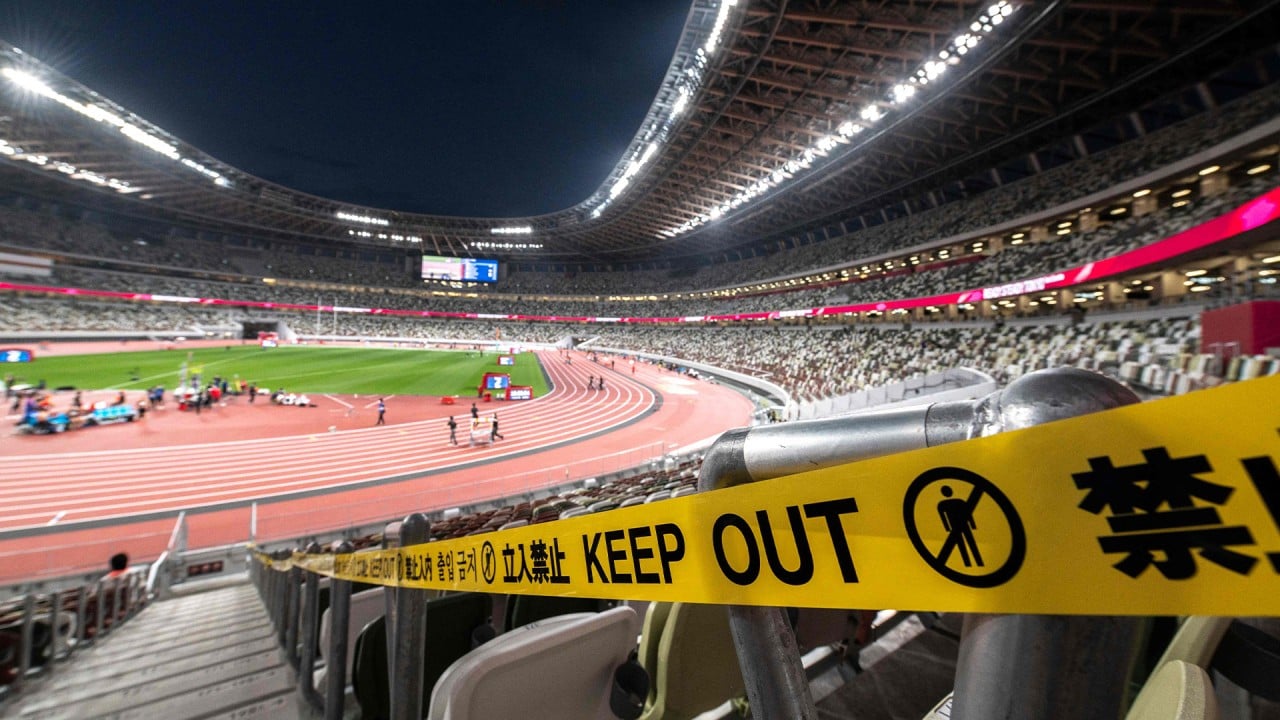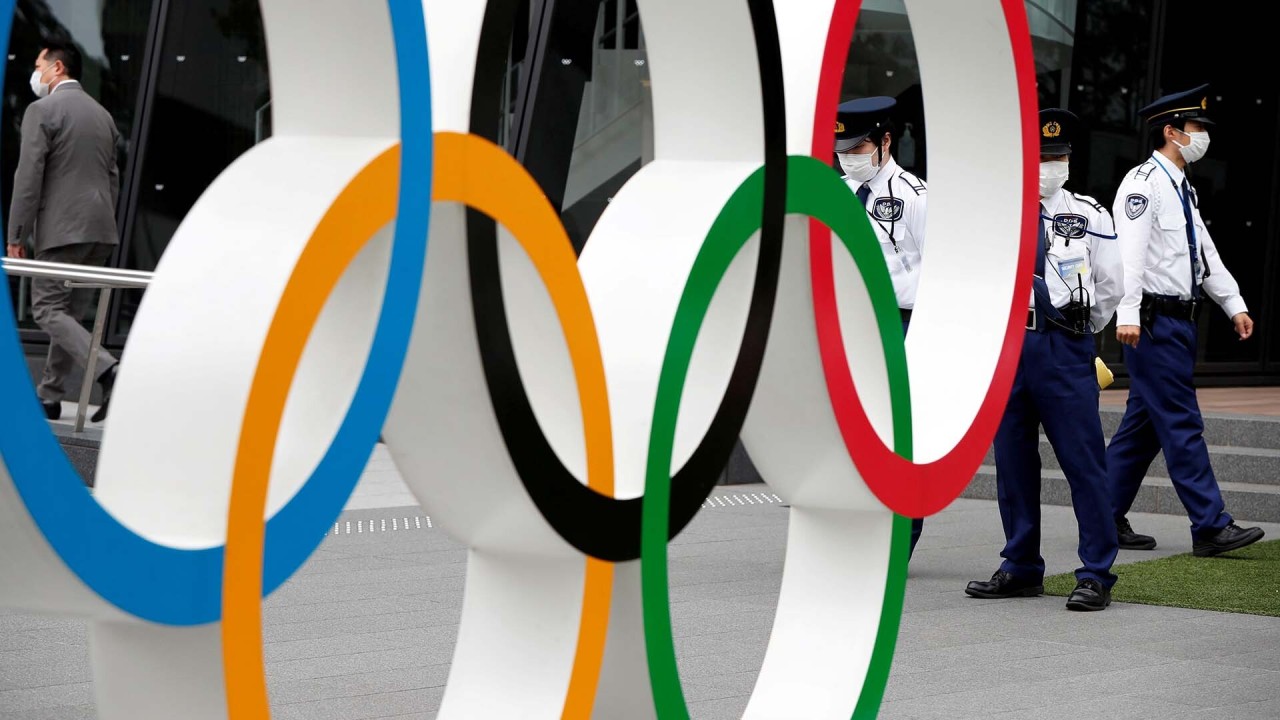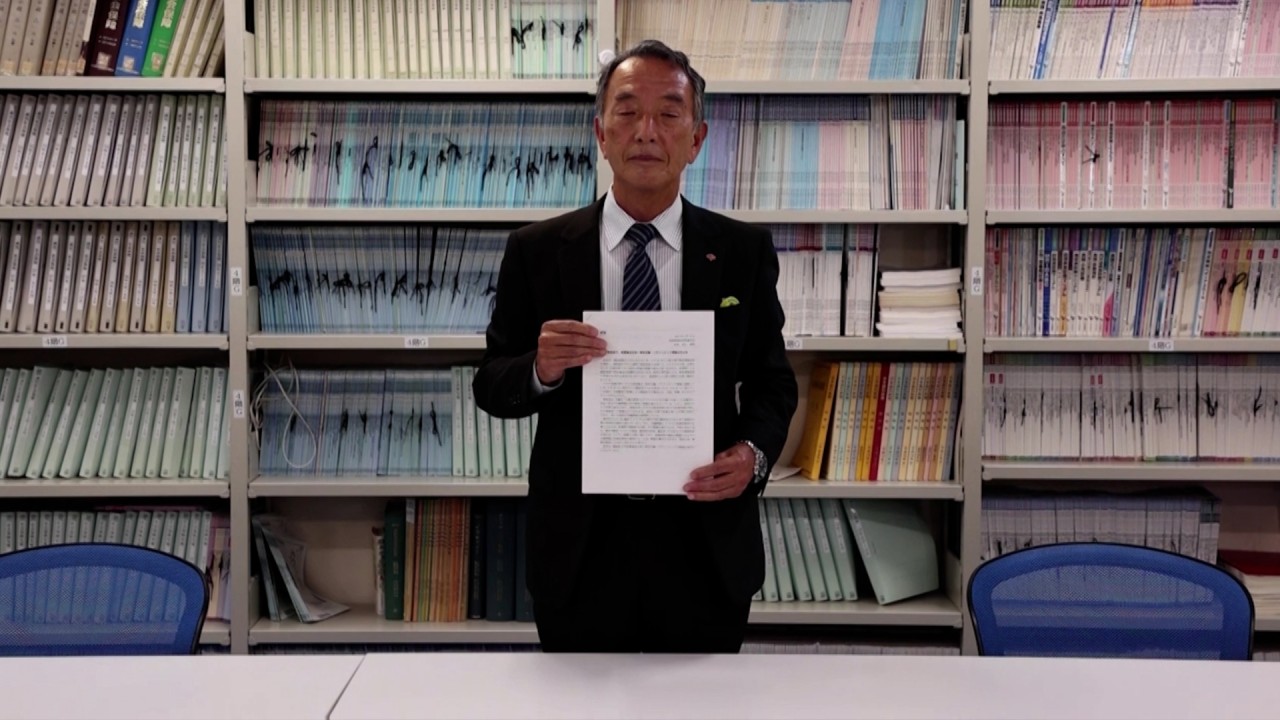
Tokyo Olympics: how Japan’s coronavirus failures have left a dark cloud hanging over the Games
- As calls mount for the Tokyo Olympics to be cancelled or postponed, the Japanese government’s mishandling of the coronavirus crisis has come into sharp focus
Renowned Japanese publishers placed a full-page advert in three major Japanese newspapers, Nikkei, Yomiuri and Asahi. The message – “No vaccine, no medicine. Should we fight with bamboo spears? We will be killed by politics” – was accompanied by an image of high-school girls practising how to fight against US soldiers with a bamboo spear during World War II.
The ad drew on a tragic wartime memory. On receiving the Potsdam Declaration on July 26, 1945 – calling for the surrender of all Japanese forces – the Japanese government failed to make the life-or-death decision promptly, despite it being clear that defeat was certain. Instead, the Japanese imperial army continued to believe there was a chance to win through spiritual strength.

04:41
Are the 2020 Tokyo Summer Olympics going ahead?
On July 22, two months after the state emergency was lifted, the government launched its “Go-To Travel” campaign. Under the scheme, the Japanese government began to cover 50 per cent of visitors’ travel costs, and local governments gave travellers coupons equivalent to 15 per cent of the travel cost.
Since then, the number of confirmed Covid-19 cases has surged. However, the government did not halt the travel scheme until December 28.
A second state of emergency was announced on January 13, which ended on March 21. Now, Japan is in its third state of emergency, which started on April 25 and was expected to end on May 11, but has been extended to the end of May.

02:47
US travel advisory and surging Covid-19 cases in Japan fail to deter Tokyo Olympics organisers
Furthermore, the process of rolling out vaccines has been quite complicated. The first batch of Pfizer vaccines arrived on February 12, four days before it was approved for use by the Ministry of Health, Labour and Welfare.
The first Moderna and AstraZeneca doses arrived around the end of April, which was almost 20 days before the approval of both vaccines. Then, the government paused the use of the AstraZeneca’s vaccine and is mulling exporting it to developing countries.
Japan expert warns ‘Olympic virus’ strain may emerge if Games go ahead
According to the Nomura Research Institute, the Japanese economy would suffer a loss of 1.8 trillion yen (US$16.5 billion), or 0.33 per cent of Japan’s GDP in 2020, if it were to cancel the Olympics. The institute estimates that Japan has already lost 14.6 trillion yen due to the three states of emergency.
The cost of the government’s dithering in its efforts to control the pandemic before the targeted start of the Olympics on July 23 has been a 5.1 per cent decline in first-quarter GDP. In contrast, the US economy grew 6.4 per cent in the same period.
The one-year delay has resulted in the cost of staging the Olympics increasing from US$12.6 billion to at least US$15.4 billion, of which an estimated US$2 billion to US$3 billion is covered by insurance. A remaining question is how much cancellation would cost sponsors. According to The Straits Times, partial reimbursement to local sponsors would cost US$3.3 billion while US$1.3 billion would probably have to be paid back to the IOC.

02:16
‘Almost impossible’ to send doctors, nurses to Olympics, says Japanese medical association
Japan currently prohibits people from over 150 countries from entering the country because of Covid-19. But the Japanese Olympic Committee is allowing athletes from all countries to enter without having to undergo 14 days of quarantine. Vaccination is not compulsory for athletes, either.
This may not be fair to athletes with pre-existing conditions, such as Japanese swimmer Rikako Ikee, who has been battling leukaemia for the past two years. We need to be attentive to the needs of vulnerable people with health conditions.
Yoshihiro Sakai is a professor at Chubu University, Japan. This articles reflects the author’s own views

